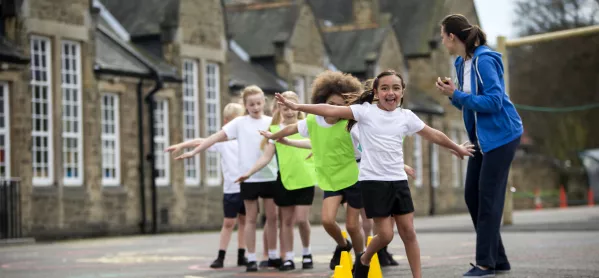Former education recovery commissioner Sir Kevan Collins has said the government should use progress data to monitor the impact of Covid catch-up activity in schools.
He has also called on the Department for Education to ensure that schools measure pupils’ wellbeing and non-academic outcomes.
And he said the department should “require schools to present information on the wider experiences and beyond-school-day activities as part of the school website”.
Exclusive: Sir Kevan Collins resigns over Covid catch-up plan funding
Background: No extended school day in new £1.4bn catch-up plan
Ofsted: Watchdog to check on whether DfE catch -p plan works
Sir Kevan has written to MPs after he was asked by the Commons Education Select Committee to set out how the government could improve the data it has on schools.
Sir Kevan appeared before MPs earlier this year following his resignation as recovery commissioner, after the Department for Education announced a funding package worth only around a tenth of the Covid catch-up spending he said was needed.
‘Use data from schools to monitor Covid catch-up activity’
In his response to MPs, Sir Kevan called for the DfE to use sample data from schools to monitor Covid catch-up activity.
He said: “Many schools use a range of standardised assessments to monitor pupil progress. The DfE should produce a list of recognised assessments and scrape the data from a randomised sample of schools to monitor Covif recovery activity.
“These data should include some of the approaches schools are using to measure wellbeing and non-academic outcomes.”
Sir Kevan gave MPs examples of questionnaires that schools can use to measure pupils’ wellbeing and behavioural issues.
He sent the committee a series of strengths and difficulties guestionnaires for pupils aged between 3 and 16.
He also repeated his call for the DfE to gather information about the length of the school day.
In his response to MPs, he said: “I was surprised that the length of the school day is not included as part of the information the DfE or Ofsted hold on individual schools. In my view, the DFE should, as standard, hold information on the length of the school day, recreation time versus in-class learning.”
The length of the school day has been a source of controversy in the government’s Covid catch-up plans.
Sir Kevan was understood to want the plans to extend the school day, as part of his recovery plan.
However, this was not included in a £1.4 billion spending announcement for tutoring and teacher development.
Sir Kevan had outlined plans for a catch-up recovery package worth around £15 billion.
He resigned after the government’s catch-up announcement and subsequently described the government’s response to the catch-up challenge as a “bit feeble”.
The Department for Education has been approached for comment.





